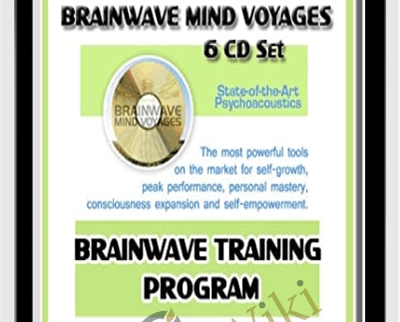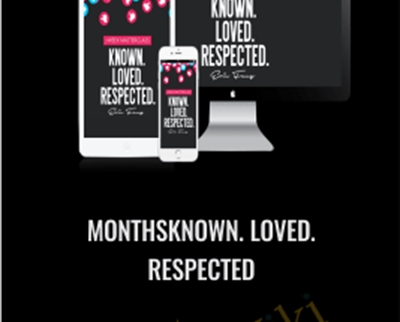Building Self-Concept – Steve Andreas
$5.00
Building Self-Concept – Steve Andreas Download. Beyond Self-Esteem, the power of the self-concept in motivating and directing a person’s behavior has been …
Salepage link: At HERE. Archive:
Beyond Self-Esteem, the power of the self-concept in motivating and directing a person’s behavior has been recognized for years. This pattern, developed by Steve and Connirae Andreas, uses submodalities to elicit the existing structure of self-concept, and then build a new one with the same structure. In this demonstration Peter learned how to think of himself as lovable, and the wide-ranging impact of this change is demonstrated in follow-up interviews with Peter and his wife. (42 minutes, 32 seconds in length.)
In this video, Steve shows us how to use submodalities (sensory distinctions such as bright/dim; loud/quiet; hard/soft) to strengthen self-concept. Steve’s client Peter learns to think of himself as loveable; and through follow-up interviews, you’ll hear how this change has affected Peter and his wife. To get maximum benefit from this video, you’ll need prior NLP experience.
Sample Seminar Notes
The Belief Change processes are appropriate whenever there is a limiting belief, which is typically a negation. The old limiting belief has to be weakened before the new belief is installed, in order to avoid creating a conflict.
However, sometimes there is no limiting belief; the person just hasn’t built a useful generalization for themselves that is durable. In this case you can find out how they maintain a durable generalization and use that format to build a new one.
Some people are able to maintain a solid sense of themselves as having some attribute – being capable, lovable, etc. – even when events or others around them temporarily contradict these attributes. Other people are much more dependent upon others to continually reassure them about an attribute even though they demonstrate it frequently in their behavior, and they may take any denial of that attribute by a person or event very seriously, no matter how many positive examples they have experienced.
1. Desired Attribute. Think of an attribute that is important to you as a person, but which you only know is true of you by current external verification from others. Some examples of attributes: being intelligent, worthwhile, appreciated, respected, etc. What is an attribute that you would like to know is true of you? For instance, when people tell you, “That was very kind,” do you go, “Huh?” in surprise, or discount it in some way? Test by asking the person “Are you a (kind) person?” and observe the nonverbal response.
Ecology: Select something which currently requires external conditions that get you into trouble. For example, annoying others as a consequence of continually asking them for reassurance. Please note this is different than checking externally in an appropriate and useful way for feedback.
2. Self-Concept. Think of a personality trait that you like and know is true of yourself. For example, you know you are intelligent, persistent, creative, considerate, etc. You have a way of knowing this internally, even when a specific event obviously contradicts this, or someone else disagrees with you at the moment. Test by asking “Are you an (intelligent) person?” and observe the nonverbal response.
3. Notice how you represent the trait that you like and know is true, in terms of submodalities. How do you represent that internal attribute so that your knowledge that it applies to you is durable and long-lasting? Typically there is a “summary representation,” an image, voice, or feeling that is used as a quick reference. Supporting this is a more extensive “database” of examples, usually in the same representational system. Ideally this database includes all representational systems. Although it may seem paradoxical, a generalization is strengthened by including several counter-examples (approximately 10%): times when you were not intelligent, kind. loving, etc. If the person does not include counter-examples, take time to access and include a few. This will result in the person feeling even more solid about this characteristic.
4. Map Across. Take the attribute that you want to know internally is true of you, and represent it in exactly the same way that you do the self-concept trait you like and know is true of yourself. It may take a little time to access enough representations of examples of this. Take the time to build this understanding thoroughly. After accessing the database, create the “summary representation.”
5. Future-pace and Test. Take this new representation into a context in the future where it will make a difference, and experience what it is like to know that this attribute is true of you in that context. Also ask “Are you a (loving) person?” and observe the nonverbal response. You should observe a nonverbal response that is similar to what you observed in step 2 above (and different than what you observed in step 1).
Here's an overview of the prominent keywords and a list of famous authors:
Business and Sales: Explore business strategies, sales skills, entrepreneurship, and brand-building from authors like Joe Wicks, Jillian Michaels, and Tony Horton.
Sports and Fitness: Enhance athleticism, improve health and fitness with guidance from experts like Shaun T, Kayla Itsines, and Yoga with Adriene.
Personal Development: Develop communication skills, time management, creative thinking, and enhance self-awareness from authors like Gretchen Rubin, Simon Sinek, and Marie Kondo.
Technology and Coding: Learn about artificial intelligence, data analytics, programming, and blockchain technology from thought leaders like Neil deGrasse Tyson, Amy Cuddy, and Malcolm Gladwell.
Lifestyle and Wellness: Discover courses on holistic health, yoga, and healthy living from authors like Elizabeth Gilbert, Bill Nye, and Tracy Anderson.
Art and Creativity: Explore the world of art, creativity, and painting with guidance from renowned artists like Bob Ross and others.
All the courses on WSOlib are led by top authors and experts in their respective fields. Rest assured that the knowledge and skills you acquire are reliable and highly applicable.
User Reviews
Only logged in customers who have purchased this product may leave a review.













There are no reviews yet.